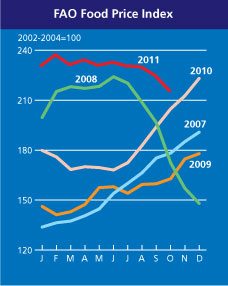Abhijit Banerjee and Esther Duflo’s Poor Economics: A Radical Rethinking of the Way to Fight Global Poverty has won the Best Business Book of the Year prize awarded by the Financial Times (FT) and Goldman Sachs.
From the Financial Times article announcing the prize:
Of the six shortlisted finalists, Poor Economics had “the potential for the greatest impact,” said one of the judges, Vindi Banga, a former Unilever executive, now a partner with private equity firm Clayton, Dubilier & Rice. Mario Monti, economics professor and former European commissioner, said it was “highly relevant” for a world “where the problems of inequality are becoming overriding.”
(Note: Yes, this is the same Mario Monti who is going to be Silvio Berlusconi’s successor as prime minister of Italy.)
Ever since I joined Duke in 2006, I have taught my development seminar without a textbook. Bardhan and Udry’s (1999) textbook is too mathematical and not empirical enough for public policy students, and easier textbooks such as Todaro and Smith‘s are too macro and not applied enough for the seminar I teach.
As such, Poor Economics is the answer to my prayers. I have been using in my development seminar this semester as “lighter” reading material to supplement the more technical readings (i.e., journal articles), and the book really makes some of the concepts discussed in lecture come alive. I am planning on using it again next year.
If you have not yet read Poor Economics, do yourself a favor and read it as soon as possible. Even aid workers and academics doing research in development can learn new, important things from reading it.

Malthus, Africa’s Albertine Rift, and Underappreciated Development Economists
From an article in the November 2011 issue of National Geographic magazine on Africa’s Albertine Rift:
By the mid-1980s every acre of arable land outside the parks was being farmed. Sons were inheriting increasingly smaller plots of land, if any at all. Soils were depleted. Tensions were high. Belgian economists Catherine André and Jean-Philippe Platteau conducted a study of land disputes in one region in Rwanda before the genocide and found that more and more households were struggling to feed themselves on little land. Interviewing residents after the genocide, the researchers found it was not uncommon to hear Rwandans argue that “war is necessary to wipe out an excess of population and to bring numbers into line with the available land resources.” Thomas Malthus, the famed English economist who posited that population growth would outstrip the planet’s ability to sustain it unless kept in check by starvation, disease, or war, couldn’t have put it more succinctly.